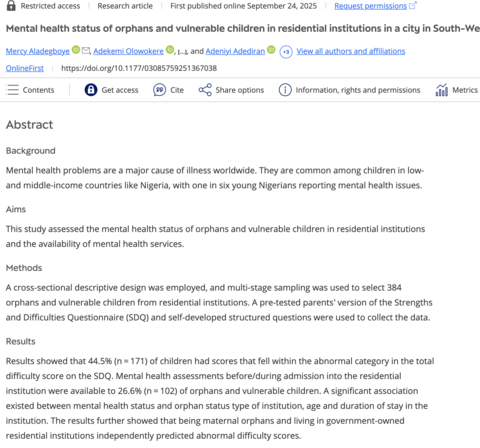Mental health problems are a major cause of illness worldwide. This is more common among children and adolescents in low- and middle-income countries like Nigeria, with one in six young Nigerians reporting mental health problems, such as depression and anxiety. This study assessed the mental health of children residing in 12 children’s residential institutions and the availability of mental health services. Data were collected using a questionnaire. The results of the study showed that a significant proportion of the children who participated had scores that fell within the abnormal category in the total difficulty score of the Strengths and Difficulties Questionnaire (a tool used to assess children and young people’s mental health). Mental health assessments before or during admission into a residential institution were made available to fewer than half of the study participants. A significant association was found to exist between mental health status and orphan status, ownership of the residential institution and the duration of the child’s stay there. The results further showed that being a maternal orphan and living in a government-owned residential institution independently predicted an abnormal difficulty score. This study therefore underscores the need for mental health assessments and care for children in residential institutions.

